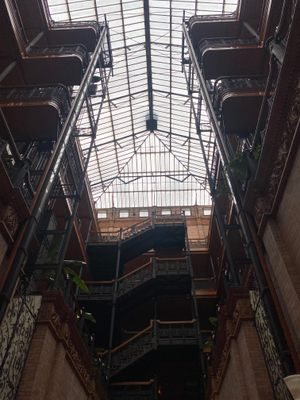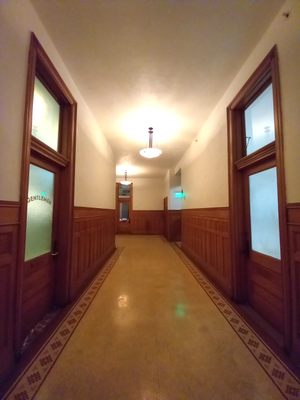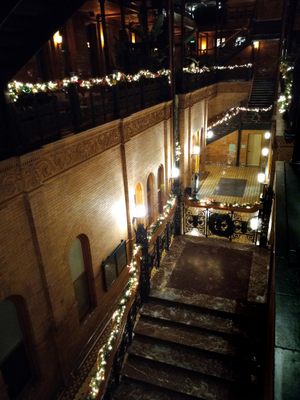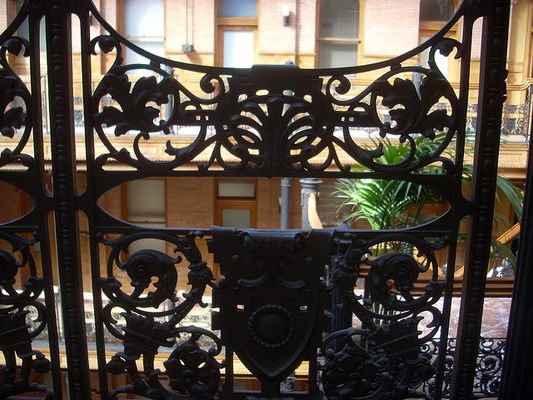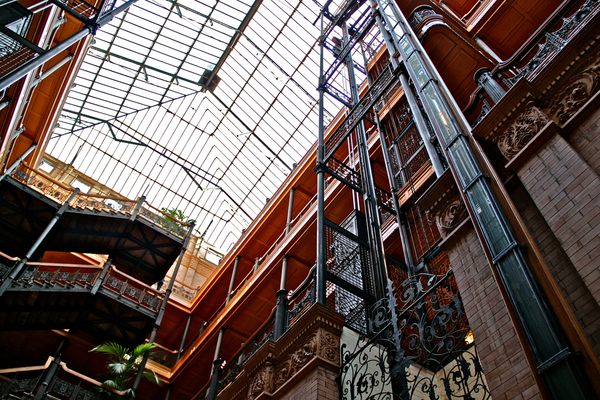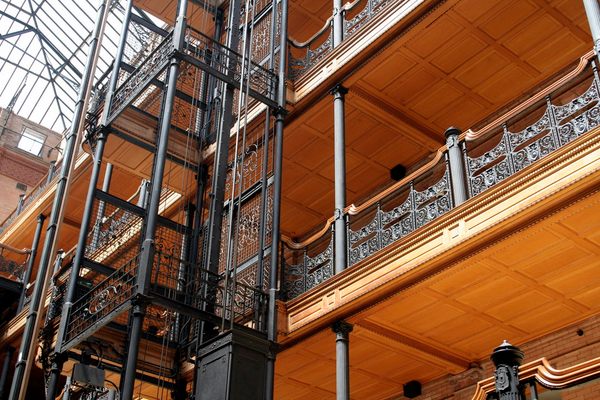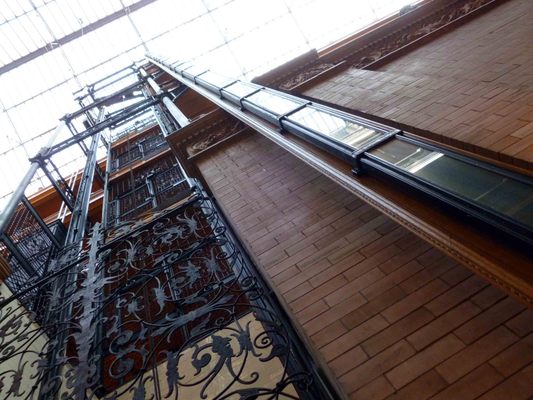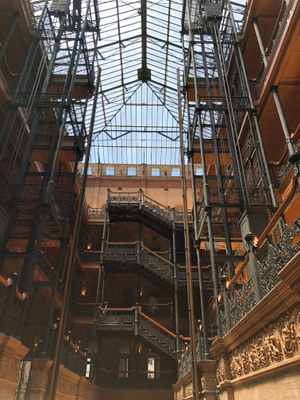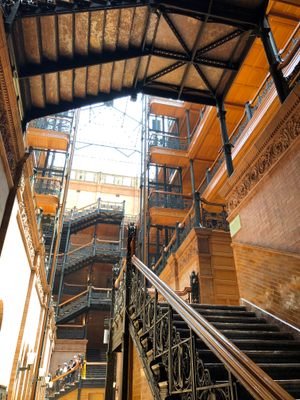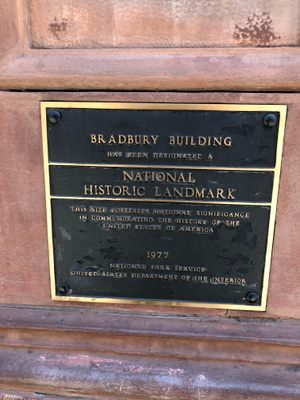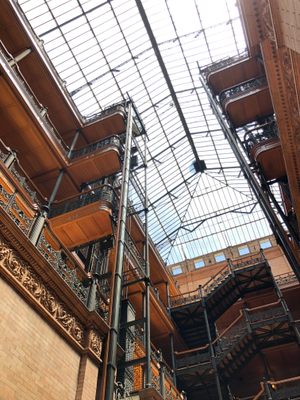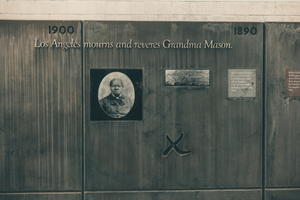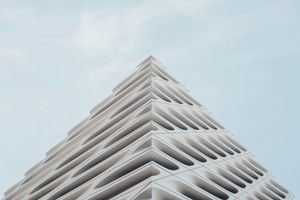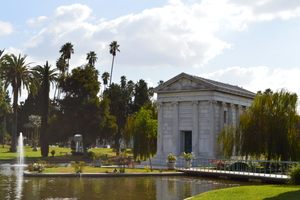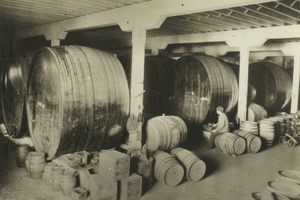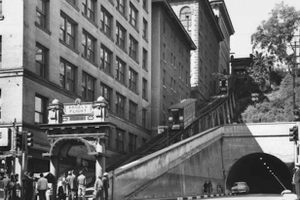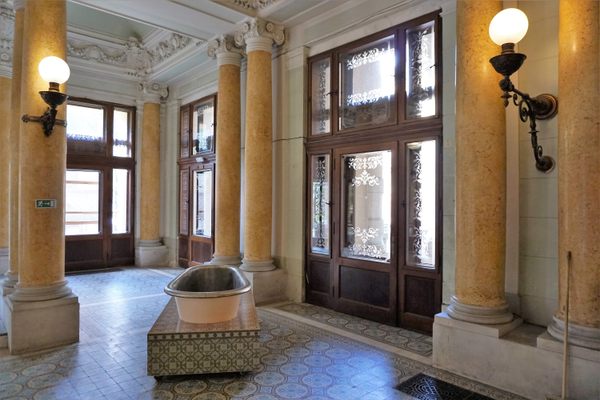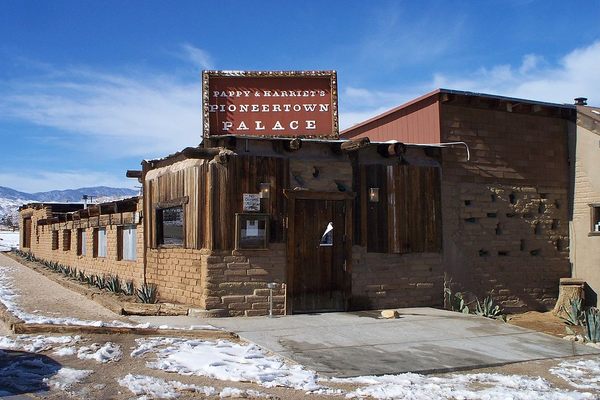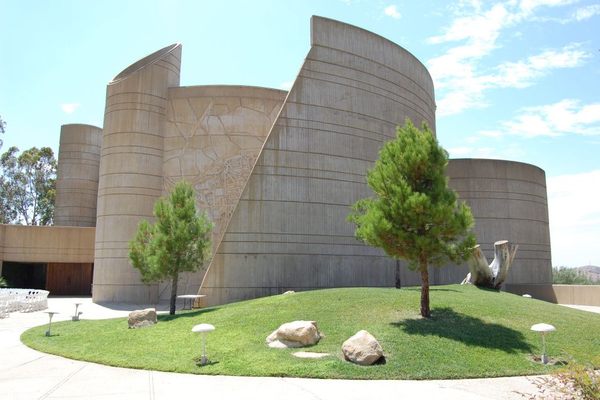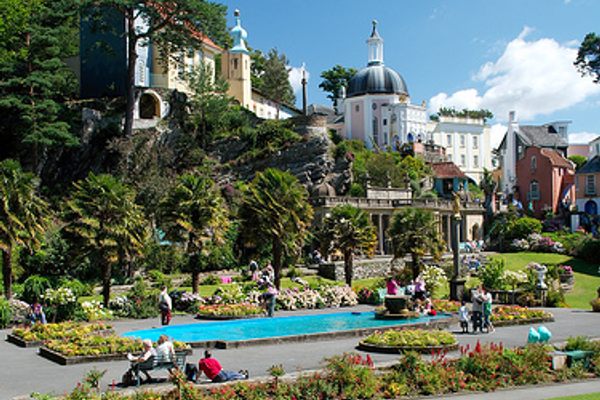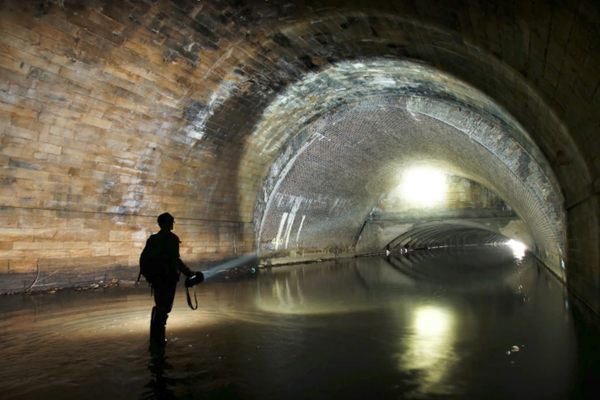About
Mining mogul Lewis L. Bradbury had a grandiose vision for a 5-story building in the heart of Los Angeles, and he was convinced only one man could build it for him.
Reluctant draftsman George Wyman wanted no part of the project, and remained stubborn until conferring with his dead brother via planchette board. Despite being six feet under for just as many years, Mark Wyman's message was clear- the job would bring success. So George Wyman acquiesced, and the Bradbury Building came into being.
Heavily influenced by the utopian sci-fi novel "Looking Backward" by Edward Bellamy, the vast structure is magnificent in its intricacies. The outside isn't overly inviting, but once inside, you enter a gorgeous center courtyard filled with natural light streaming in from a skylight. Caged elevators, surrounded by ornate wrought iron used abundantly on the many staircases cast shadows around the courtyard. Used as a set for numerous films, notably Blade Runner, the lacework balconies appear in all sorts of popular culture venues, influencing film, TV, comic books, music videos and video game designs.
The strongest bond that the Bradbury Building has in popular culture remains with Science Fiction. Not only was its design inspired by a sci-fi novel and its courtyard the ideal setting for films of the genre, Wyman's grandson was science fiction publisher Forrest J. Ackerman. It is a common misconception that the building was named after Ray Bradbury, Ackerman's close friend and famed sci-fi author, but the author sharing a name with the founder is merely a coincidence.
Related Tags
Community Contributors
Added By
Published
December 13, 2012



